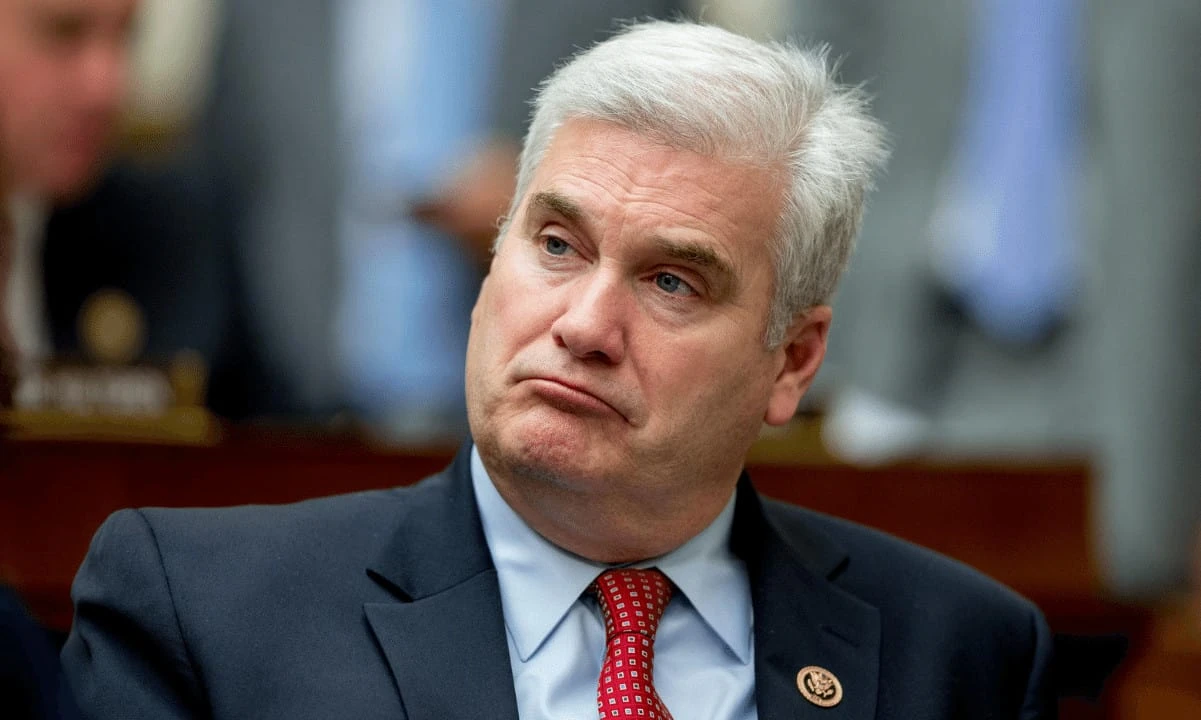Jun 07, 2024 12:25
Gary Gensler once described the Securities and ExchangeCommissions (SEC) role in policing the Wild West crypto industry as a copon the beat.
Although anecdotal, what has since followed is a series ofhigh-profile civil lawsuits against some of the sectors largest players. Yet,a statement like this would only ring true if the SEC actually adhered to itsvery own rule-driven standard.
SEC's Priorities in Crypto Regulation
Its no secret that the SEC, which aims to bringcrypto under tighter government scrutiny as its primary overseer, is continuingto drag its feet by refusing to tailor rules to clarify oversight of themulti-trillion dollar crypto sector. But it isnt just that the SEC hasdeclined to write newregulations on how digital assets should be treated, the agency has insteadplaced its focus, solely and lamentably, on enforcement actions that haveturned courts into execution chambers as academic J.W. Verret has remarked.
Gensler, who operates aschairman of the SEC, has previously claimed that most digital assets arecrypto asset securities despite there being no crypto-specific regulations in place that stipulate this. All the while,the SEC demands that cryptocompanies comply withstill-evolving securities-law requirements.
SEC Faces Scrutiny Amid Crypto Regulation SetbacksSEC under scrutiny for crypto regulation after losses against Ripple and Grayscale, raising questions about its independence and political influence.#Blockchain #CryptoNewshttps://t.co/bGqihWD4Nc
Global Crypto News (@GlobalCNNews)
June 4, 2024Challenges Faced by Crypto Companies
In fact, the SEC has neverissued a single regulatory guideline pertaining to the registrationof digital assets. Inthe barren land of crypto regulatory ambiguity, crypto companies like BlockFi get sued for failing to registerdespite not knowing how to come into compliancein the first instance.
Notably,Gensler has publicly stated that Bitcoin (BTC) is not asecurity, but he has hinted that Ethereum (ETH)might be a securityand has repeatedly argued that hundreds of smaller tokens should fall under the SECs jurisdiction, which wouldmean that the companieswho issue such cryptocurrencies would need to register with U.S governmental authorities.
Defining Crypto as Securities
In addition to refusing toconduct the rulemaking needed to set stable crypto regulatorystandards, the SEC isunwilling to formally define what makes a crypto a security outside of the explanations the agencyprovides in its enforcement actions.
Granted, the SEC has statedthat it is in the process of forming cogent crypto policies, evidentinproposals such as thosewhich seek to overhaul the definition of exchanges in order torequire that investment advisors use qualified custodians to parktheir customerscrypto. However, if the SEC spent as much time clarifying crypto-specific rules (as manyin the industry haveurged it to do so) as it does suing crypto companies in court, we might have more answers.
Coinbase Accuses SEC of Stifling Crypto Industry with Regulation-by-Enforcement Strategy https://t.co/gD5WUjnyJt
Liisa Crypto (@LiisaCrypto)
June 3, 2024But crypto regulatoryrulemaking isnt the SECs priority, nor is providing the clear answersthat would ease the legalquagmire that many cryptocompanies remain in.
Balancing Enforcement and Guidance
Genslers view is thatexisting securities laws are sufficiently clear because SEC measuresalready apply to crypto aconvenient but misguided argument that negates the necessity of new rules. Whats more, Gensler (who evenonce taught an MITblockchain lecture courseand has historically flip-flopped on his views) has said that while misconduct isrampant in the cryptosector, crypto only accounts for a small portion of the U.S capital markets.
If indeed crypto is too smallof an industry to exist on the SECs direct radar, why has thisostensibly inconsequentialsector garnered so much of the agencys attention, leading to controversial billion-dollar penalties for cryptocompanies like Ripple? How does pursuing a punitive campaign against cryptoassist in the issuingof clear guidance on core issues that impact the industry?
Global Trends in Crypto Regulation
Hundreds of millions ofpeople worldwide use crypto for various purposes and believe in itspotential. The SECs inability to see how crypto is inevitably a part of ourfuture means thaton a federal regulatorylevel, the US could lag behind the rest of the world. The EU, UK, United ArabEmirates, Japan, Singapore and even China have introduced or are in the processof introducing permanentregulatory frameworks for crypto take note SEC. U.S policymakers should consider running a sandbox too, just like the UK has done.
BREAKING: President Biden vetoes bill that allows highly regulated financial firms to hold #Bitcoin and crypto. pic.twitter.com/qRWC2myigR
Watcher.Guru (@WatcherGuru)
May 31, 2024I often find myself thinkingof the age-old dating question: Where do we go from here?. No,but really. How canthe crypto industry continue to move forward without a clear regulatory path ahead? The stakesare too high, especially as crypto has become increasingly woven into the global financial system. Investorprotection and enhancing public trust in our markets requires that we work witha sense of urgency, SEC enforcement division director Gurbir Grewal once remarked. I just wish that sense of urgency wouldbe applied to theformation of much-needed crypto regulatory guidelines.
This article was written by Mohadesa Najumi at www.financemagnates.com.






















